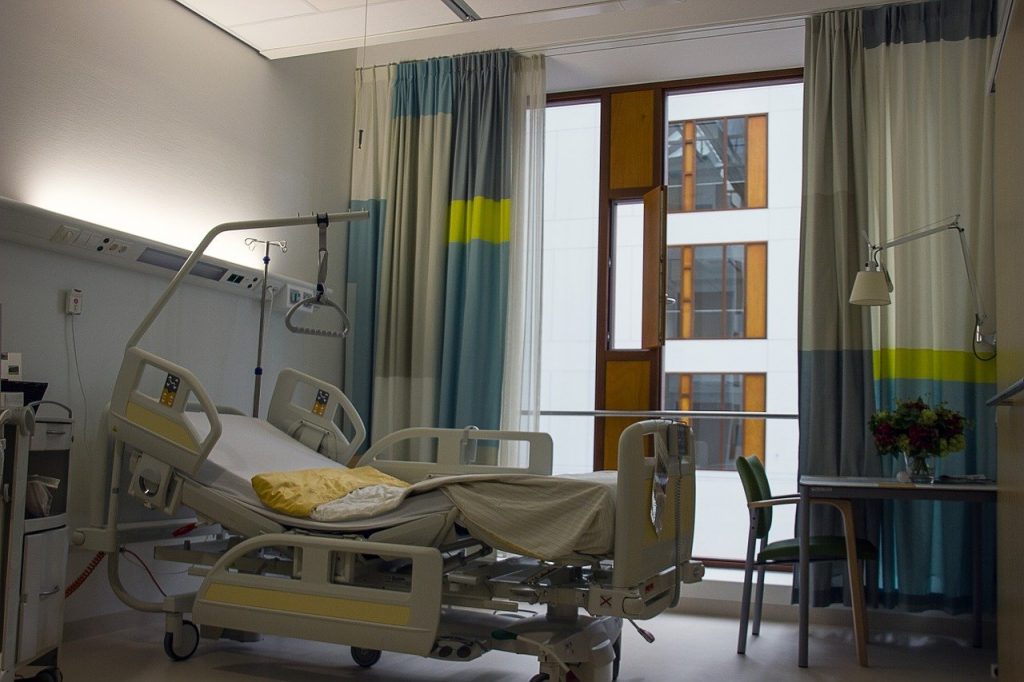A Suffolk independent mental health service has launched a recruitment drive in response to the Care Quality Commission (CQC) rating it inadequate for the second time in four months.
The St John’s House in Palgrave is run by Partnerships in Care, which is part of the Priory group, and had 35 patients at the time of inspection.
The CQC gave the rating after it found known risks affecting patient safety had not been addressed during an investigation in April.
The unannounced inspection aimed to determine whether the hospital, which cares for adults with learning disabilities and associated mental health issues, had made improvements after it was rated inadequate overall and placed in special measures last year.
Its ratings for being effective, caring and responsive to people’s needs were suspended after that inspection, and these were assessed on the latest visit.
Following the latest inspection, the service was also rated inadequate for being safe, effective, caring and well-led and rated as requiring improvement for being responsive to people’s needs.
In response, the hospital has launched a recruitment drive to help improve its service.
Inspection findings
The CQC’s latest inspection found instances where staff were again asleep when they should have been observing patients and that the service relied on agency workers who did not always know the service or have adequate training to support patients.
It added that documentation, including for risk assessments, was not always comprehensive and that lessons learned were not always recorded following patient safety incidents.
However, inspectors identified some areas where the hospital was exhibiting good practice, including for infection prevention and in ensuring patients in long-term segregation had access to activities.
Following the previous inspection, CQC placed conditions on the hospital, including preventing it from admitting new patients without CQC agreement which remain in place.
If enough improvement is not made, the CQC said it will use its enforcement powers further to protect patients from the risk of harm and hold the service’s leaders to account.
Recommended remedies
Following the latest inspection, CQC told the Priory group it must make several improvements at St John’s House, including:
- Employing enough staff with the right training and ensuring they receive adequate supervision. Undertaking patient observations in line with care plans and policies.
- Ensuring areas for patient seclusion and long-term segregation are safe, fit for purpose and protect patient dignity.
- Ensuring staff know the location of emergency equipment, including ligature cutters and the defibrillator.
Responding appropriately to patients’ physical health needs. - Complying with the duty of candour.
- Reviewing and actioning all safety incidents, including for safeguarding, so changes are made as a result of learning.
- Using good governance to identify areas for improvement and ensuring assurance systems and processes are in place.
CQC head of inspection for mental health and community services Stuart Dunn said: “Our previous inspection identified several areas where St John’s House needed to improve its care of its patients.
“These included ensuring people at risk of self-harming were observed appropriately, and measures to protect people from abuse were in place.
“We reported these issues to its leaders, so they knew what they needed to address.
“Disappointingly, our latest inspection found the overall quality of care had not improved and many of the issues we previously raised remained unchanged. These included failings regarding patient observations, staffing arrangements and record keeping – all of which presented risks to patient safety.
“The hospital remains subject to enforcement action following last year’s inspection, and we continue to monitor it closely. We will take further action to protect people if they are at immediate risk of harm, or if the service does not evidence how it will meet its obligations to its patients.”
St John’s response
In response, a spokesperson for the hospital said: “We have been taking decisive steps to address the issues raised by the CQC to ensure patients receive the high standard of care they should expect.
“These include recruiting additional high-quality locum nursing staff, a consultant psychologist and a new medical director and we are appointing a new, full-time hospital director.
“Though St John’s House has had to deal with a shortage of clinical staff, which is affecting the entire healthcare sector as a whole, we remain firmly committed to ensuring patient needs are met.
“This includes working closely with commissioners and families to facilitate re-location to more appropriate settings which may take several months due to a shortage of alternative placements.”
